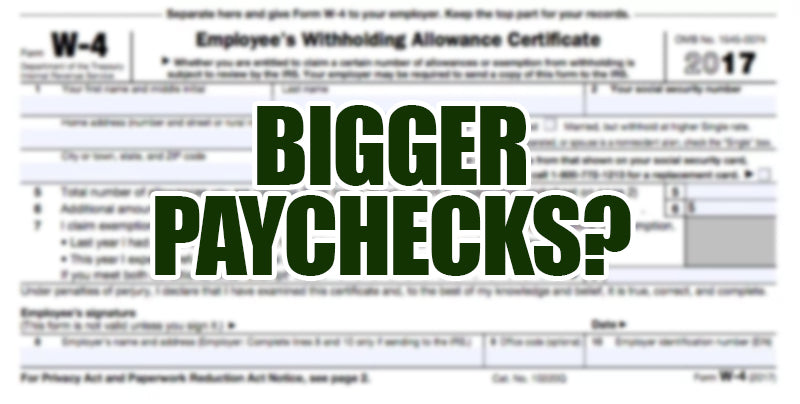
Why Your Paycheck Is Bigger Now
Share
Workers are starting to see more take-home pay as employers implement the new withholding guidelines from the IRS, which dictate how much employers withhold from pay for federal taxes. Those whose checks have remained the same shouldn’t fret — employers have until Feb. 15 to make the changes.
(Use some of that extra cash to get this shirt... Article Continued Below)
Treasury Secretary Steven Mnuchin has estimated that the new rules will mean more take-home pay for about 90 percent of American workers.
How much extra cash? It depends on several factors, such as workers’ income, how often they are paid and the number of withholdings allowances they claim on their IRS Form W-4 with their employer.
Those whose employers were quick to make the change welcomed the extra money — anywhere from a few dollars to a few hundred dollars.
Wayne Love, who works in managed care in Spring Hill, Florida, got an extra $200 in his paycheck last week, which he said will help offset a $300 increase in the cost of his health insurance.
“I have heard time and again that the middle class is getting crumbs, but I’ll take it!” Love said by email.
Julia Ketchum, a secretary at a public high school in Lancaster, Pennsylvania, said she was pleasantly surprised her pay went up $1.50 a week. She didn’t think her pay would go up at all, let alone this soon. That adds up to $78 a year, which she said will more than cover her Costco membership for the year.
And Todd Anderson of Texas and his fiance, who are both educators, got an extra $200 in their paychecks combined that they plan to use to cover the costs of a second baby on its way.
According to the nonpartisan Tax Policy Center, a middle-income household would on average get a tax cut of $930 this year, lifting their after-tax income by about 1.6 percent. That increase won’t be perfectly reflected in their paycheck though.
That’s because lower tax withholding on paychecks is just a piece of a complicated set of changes to tax law that the GOP pushed through in December. And what your employer withholds is based on an estimate of your tax obligation that includes many complex factors, but it’s not a perfect measure.
As a result, taxpayers may find they are unintentionally over- or underwithholding for their taxes if they don’t do some legwork.
Give this article a share...
